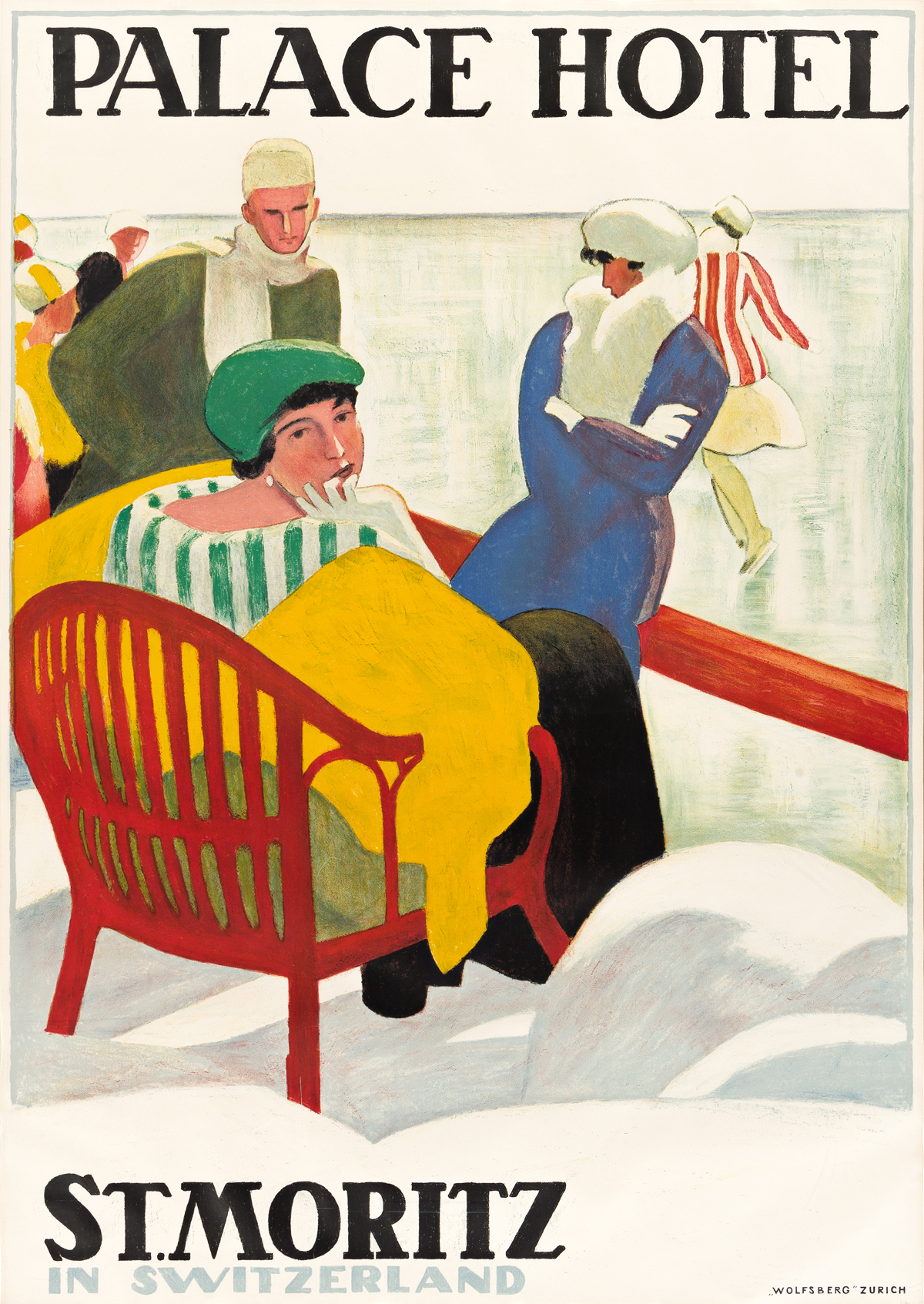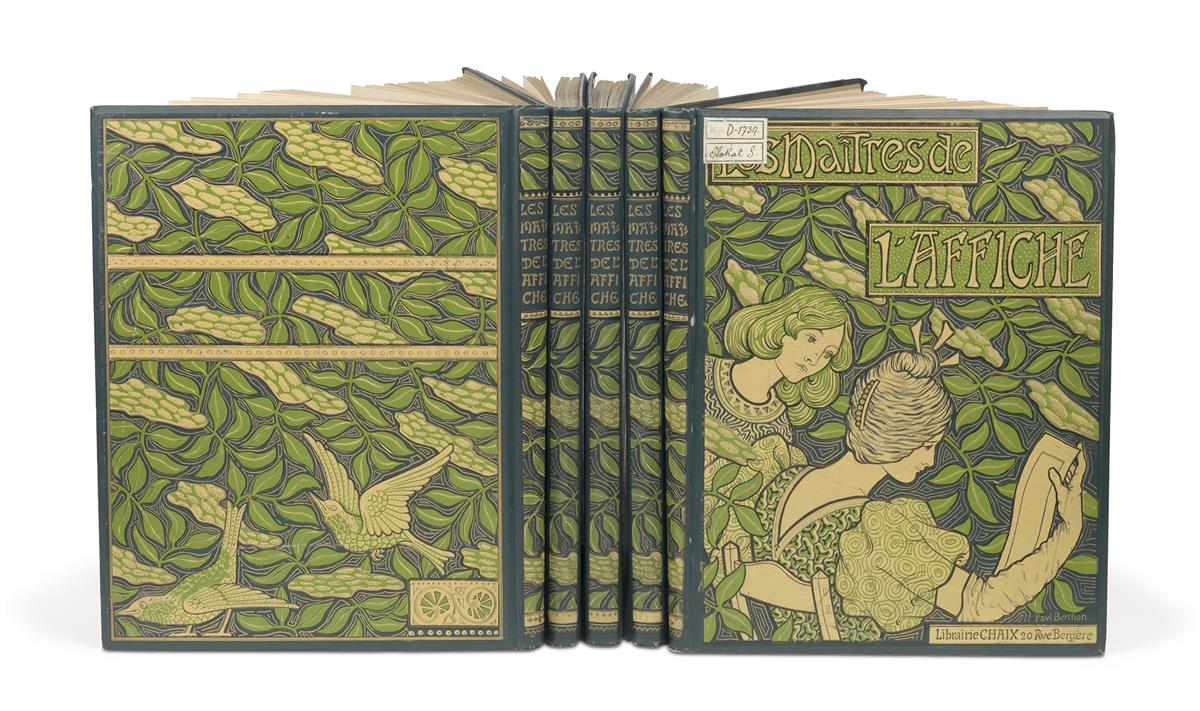Collecting Vintage Olympic Posters
Collecting Olympic posters was straightforward up until the 1964 Tokyo Olympics. Prior to those games, the International Olympic Committee would choose one official poster (on some occasions, they chose two) to represent the games. Those images became indelibly connected to the games they represented.
The First Official Olympic Poster in 1912
Although the first Olympic Games of the modern age were held in Athens in 1896, “it was the pioneering Stockholm Games of 1912 that first realized the potential of an official Olympic poster as a medium for international publicity” (A Century Of Olympic Posters, Margaret Timmers, Victoria & Albert Publishing, 2008, p. 8).
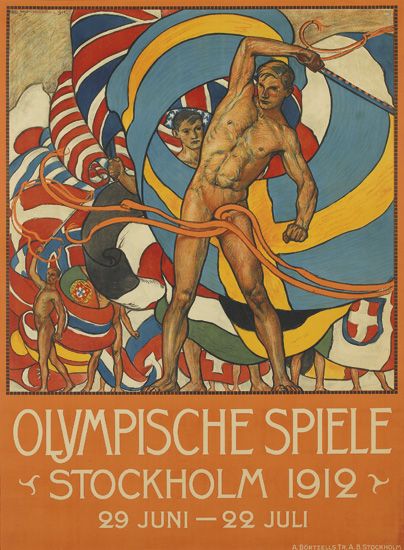
Left: Olle Hjortzberg, Olympische Spiele / Stockholm, 1912. Sold February 2012 for $3,600.
The image was selected as the result of a competition held by the Swedish Olympic Committee and illustrates “a parade of nations, each athlete bearing a billowing flag — with Sweden’s at the forefront — and marching towards the common goal of the Olympic Games. It was also a celebration of the nude male body as an ideal, a symbol of athletic perfection in the classical tradition. . . [The] daring design . . . immediately brought ancient mores into conflict with twentieth-century notions of propriety” (Timmers p. 21). In a case of graphic irony, the artist Gustaf Olaf (Ollie) Hjortzberg was best known as a painter of church murals in Sweden. These posters were printed in 16 different languages, including Chinese, Hungarian, Japanese, Russian and Turkish.
1920 Antwerp Olympics
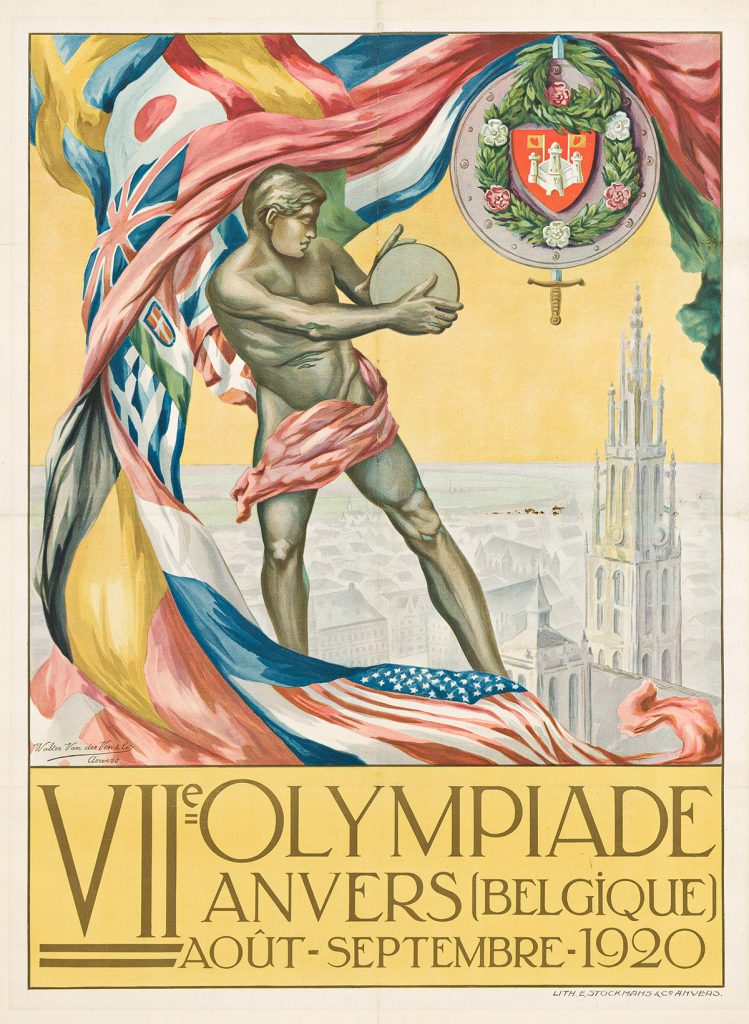
For the seventh Olympic games held in Belgium, the official poster “featured a discus thrower in the foreground, enveloped in a swirl of the flags of participating nations . . . with the Belgian flag prominent to the left and the coat of arms of Antwerp displayed top right. A panoramic view of the city, showing the majestic towers of the Gothic Cathedral of our Lady, the Grote Markt and old City Hall, reinforced the message that Antwerp’s proud cultural heritage justified its selection as the venue for the VII Olympiad – a precursor of the many posters in the years to come that would project patriotic imagery and emblems of civic identity . . . unfortunately, the VII Olympiad ended in a mountain of debt and a liquidation committee had to resolve the deficit” (Olympic Posters p. 31). This poster was printed in 17 different languages. The Dutch version was printed by Van Dieren & Co. Olympic Posters p. 30 (var), Sportissimo p. 14.
1924 Paris Olympics
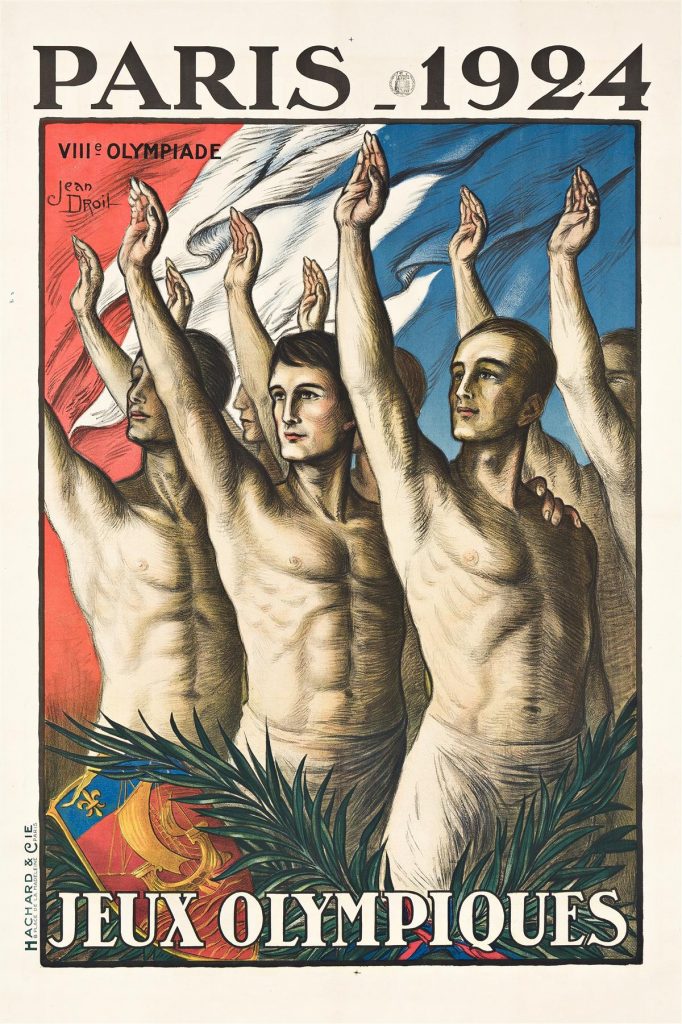
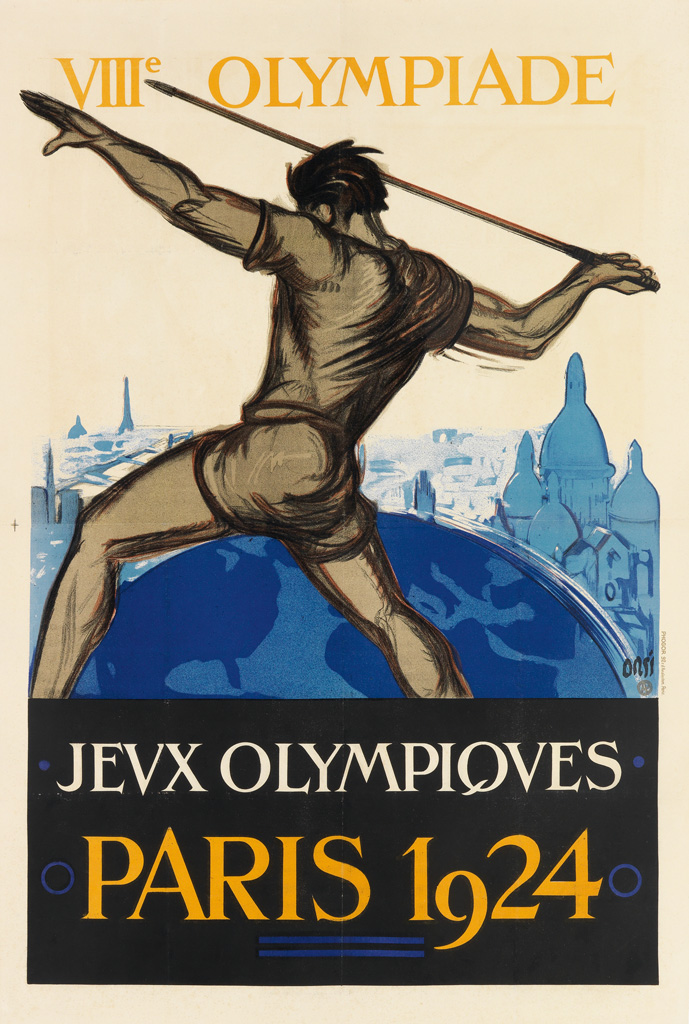
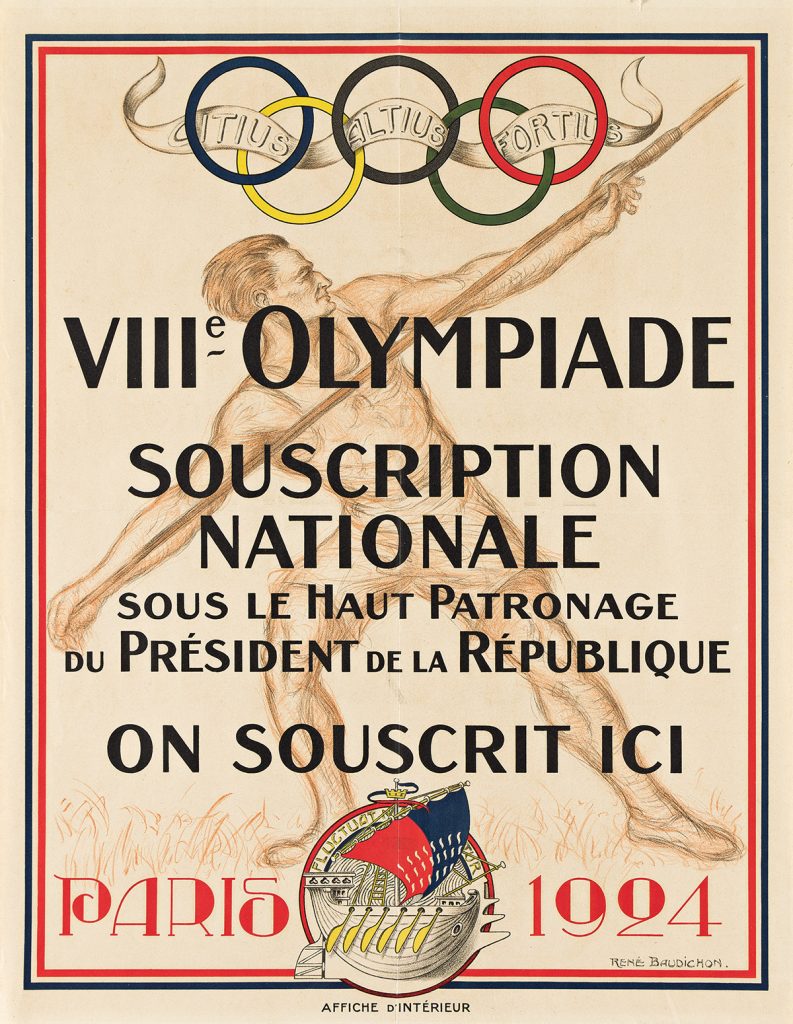
For the Paris Olympics in 1924, the French Olympic Committee chose two posters to represent the games. One celebrated the Greek ideals of physical beauty and the other showed an athlete mid-motion, ready to launch his javelin while standing atop a globe with the skyline of Parisian monuments behind him. These two images also appeared on programs and postcards for the games.
1964 Tokyo Olympics
By 1964, for the Olympics in Tokyo, the first Olympic Games held in Asia, the Japanese Olympic Committee sanctioned a set of posters to represent the games.
1972 Munich Olympics

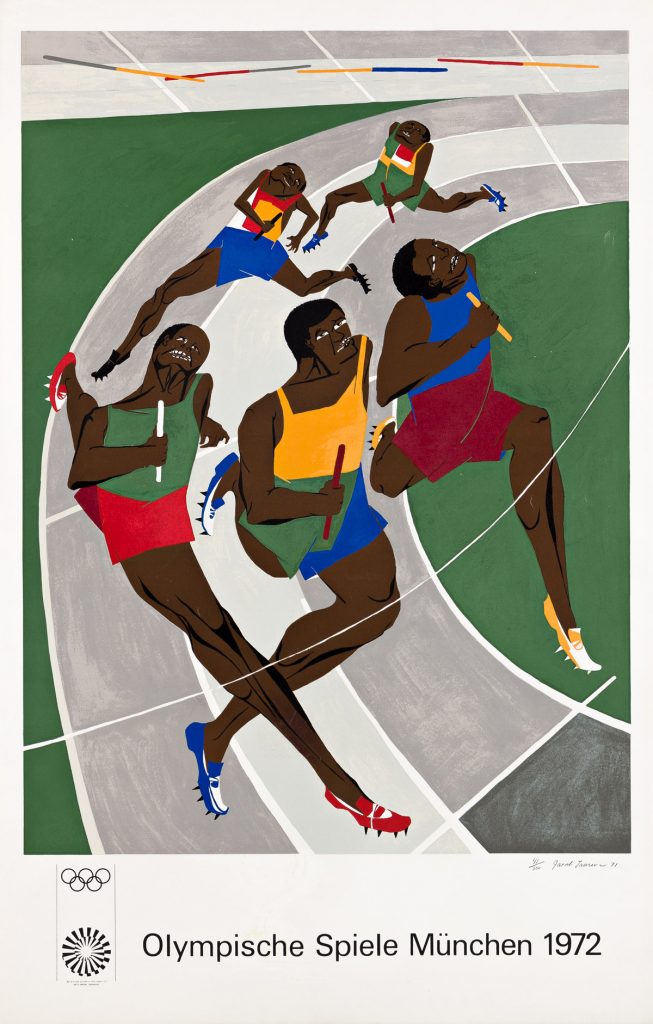

It was the 1972 Munich Games that saw the first appearance of commissioned artistic posters — images that would relate to and interpret the Olympic spirit and the message of the Games. A series of 28 posters were printed and released in batches of seven in the years leading up to the opening of the games in Munich. Among the most prominent of these posters, designed by an impressive cadre of international artists, are images by Jacob Lawrence, David Hockney, Oskar Kokoschka, Max Bill, Victor Vasarely, Josef Albers, and Serge Poliakoff. For many, these images became more visually associated with the Games than the official poster, which evoked the modern architecture of the venues.
1984 Los Angeles Olympics
By 1984 and the games in Los Angeles, the graphic field of Olympic posters was expanded yet again. Not only did the Los Angeles Olympic Organizing Committee commission 16 artists to design images for the games, but they began a new tradition for Olympic Posters when they commissioned “further categories of posters representing the subject of sport from specific artistic viewpoints…” (ibid p. 103) adding an additional 17 images to the marketplace.
The 2024 Games in Paris
For the upcoming Olympic Games in Paris, July 2024, the organizers have once again broken new ground in their conception of the poster for the event. The image is a diptych, combining the Olympics and the Paralympics poster. Rather than being a graphic bullet point and an eye-catcher as Olympic posters in the past, this complex illustration by Ugo Gattoni, “depicts a fantasy city that also serves as a gigantic stadium, within which sit the capital’s monuments, symbols of France, various Paris 2024 competition venues and several different sports and key figures. This spectacular landscape invites spectators to dive in and discover an entire range of different details and miniature scenes that, combined, form a fascinating and extremely colourful whole” (Olympics.com). Reuters commented that the image is designed “With a nod to Surrealism and an obsession with detail.
For the upcoming Olympiad, the organizing committee also commissioned a series of 14 art posters, designed by seven artists, each tasked with representing the Olympics and Paralympics.
